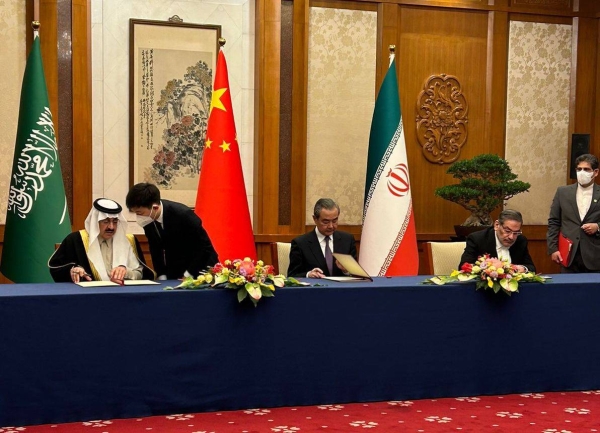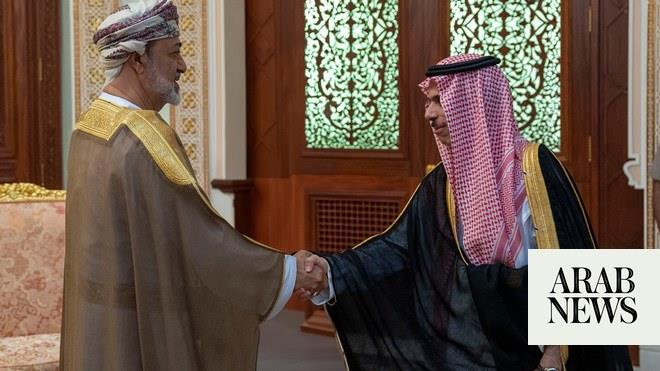
Events in Oman and the UAE this past week give us an opportunity to consider anew the relationship between Gulf countries and Israel, and particularly the potential for rapprochement and cooperation through the prism of the aspirations of the citizenry. The entire Gulf Cooperation Council (GCC) region is preening for economic breakout — the promise that comes from an educated class and ambitious people. Gulf countries who choose to work with Israel could gain an advantage over those who do not. After all, Israel has the Middle East’s most dynamic economy, best higher education system and a cultural experience that aligns easily with the rest of the region.
In the last week, Israeli Prime Minister Benjamin Netanyahu visited Oman and an Israeli judo team competed in Abu Dhabi. The Israeli team celebrated the Jewish Sabbath in Abu Dhabi and, when two Israeli judokas won gold medals, the Israeli national anthem, Hatikvah, was played without incident. At the same time, Middle East events have reminded us all that we are foolish to deny the existence or sovereignty of another nation. We know that countries and populations need not approve of everything that happens in another country.
Egypt and Jordan have had peace and cooperation with Israel for 40 years and 24 years, respectively. Both Egypt and Jordan have benefited through the economic exchange most of all. Tourism from Israelis has been a success, and international visitors to Israel can now easily add side trips to Giza or Petra. There are other trade benefits as well. For instance, Israel supplies Egypt with natural gas, just as Israel would be a natural customer for Gulf region oil. Even now, Israel buys oil from Iraqi Kurds that is transported through Turkey. As Egypt, Jordan and other groups have benefited from relationships with Israel, Gulf countries could find even more opportunities.
Israel has the highest gross domestic product per capita in the Middle East. Saudi Arabia, a G-20 country, has the largest economy in the region, and the Emirati economy is also slightly larger than Israel’s. However, according to the World Bank, Israel has the world’s 31st largest economy and the largest non-hydrocarbon economy in the Middle East. It is known globally for its tech industry. There was even a bestselling 2009 book about it called “Start-up Nation.” Israel is also a leader in biotechnology and pharmaceuticals. By the start of this decade, Israel was the fourth-largest pharmaceutical exporter to the US, ahead of the UK, Canada, China and India. The partnership opportunities for Gulf businesses and engineers abound.
As Egypt, Jordan and other groups have benefited from relationships with Israel, Gulf countries could find even more opportunities.
Ellen R. Wald
Israel is also home to several of the best universities in the Middle East, according to Times Higher Education. Israel has two universities listed in the top 250, four in the top 500, and six in the top 800. No other Middle Eastern country has as many universities so highly ranked. Moreover, in the last seven years the number of Arab (Palestinian) students at Israeli universities has grown by 78.5 percent, according to Israel’s Council for Higher Education. Today, 16.1 percent of students at Israeli universities are Arab (Palestinian), so the cooperation could be seamless. There is a great opportunity for the exchange of students and scholars in engineering, sciences, medicine and entrepreneurship.
Overall, Israel would offer a familiar environment for Gulf citizens to study and work. There are opportunities in Arabic and English. Many Israeli cities like Haifa and Tel Aviv include plenty of Arab (Palestinian) culture. More than 20 percent of Israeli citizens are Palestinian, and a large percentage of Jewish Israelis descend from communities that lived in Arab countries within the last 70 years. Gulf citizens would integrate easily while working or studying in Israel, and they would not need to worry about appearing different. There is easy access to Muslim worship and halal food, as well as Arabic language music and other entertainment. The state-owned broadcasting authority has an Arabic department and Arabic content. Arabic is taught regularly in Israeli schools. In Israel, most people take off work on Fridays, in addition to Saturdays.
Israeli workers and experts would also provide a benefit to the local economies of the Gulf nations. Israeli researchers, engineers and startups would be natural partners and employees in a Gulf tech industry ecosystem that is looking to blossom. Dubai is a perfect example of an international city that really should welcome Israeli businesses, which are already active from the US to Japan. Similarly, nearly half of all Israelis traveled abroad last year, spending money in Turkey, India and elsewhere. Israel would be a lucrative new market for tourism.
There has been speculation for years that the mutual threat of Iran is drawing Gulf countries closer to Israel at the highest levels of intelligence and the military. This may be true, but countries are best defined by their aspirations, not their enemies. The people of the lower Middle East — Omanis, Emiratis, Saudis, Bahrainis, Kuwaitis, Jordanians, Egyptians and Israelis — have lofty aspirations. They can best achieve them together.
Ellen R. Wald, Ph.D. is a historian and author of “Saudi, Inc.” She is the president of Transversal Consulting and also teaches Middle East history and policy at Jacksonville University. Twitter: @EnergzdEconomy
Disclaimer: Views expressed by writers in this section are their own and do not necessarily reflect Arab News" point-of-view












